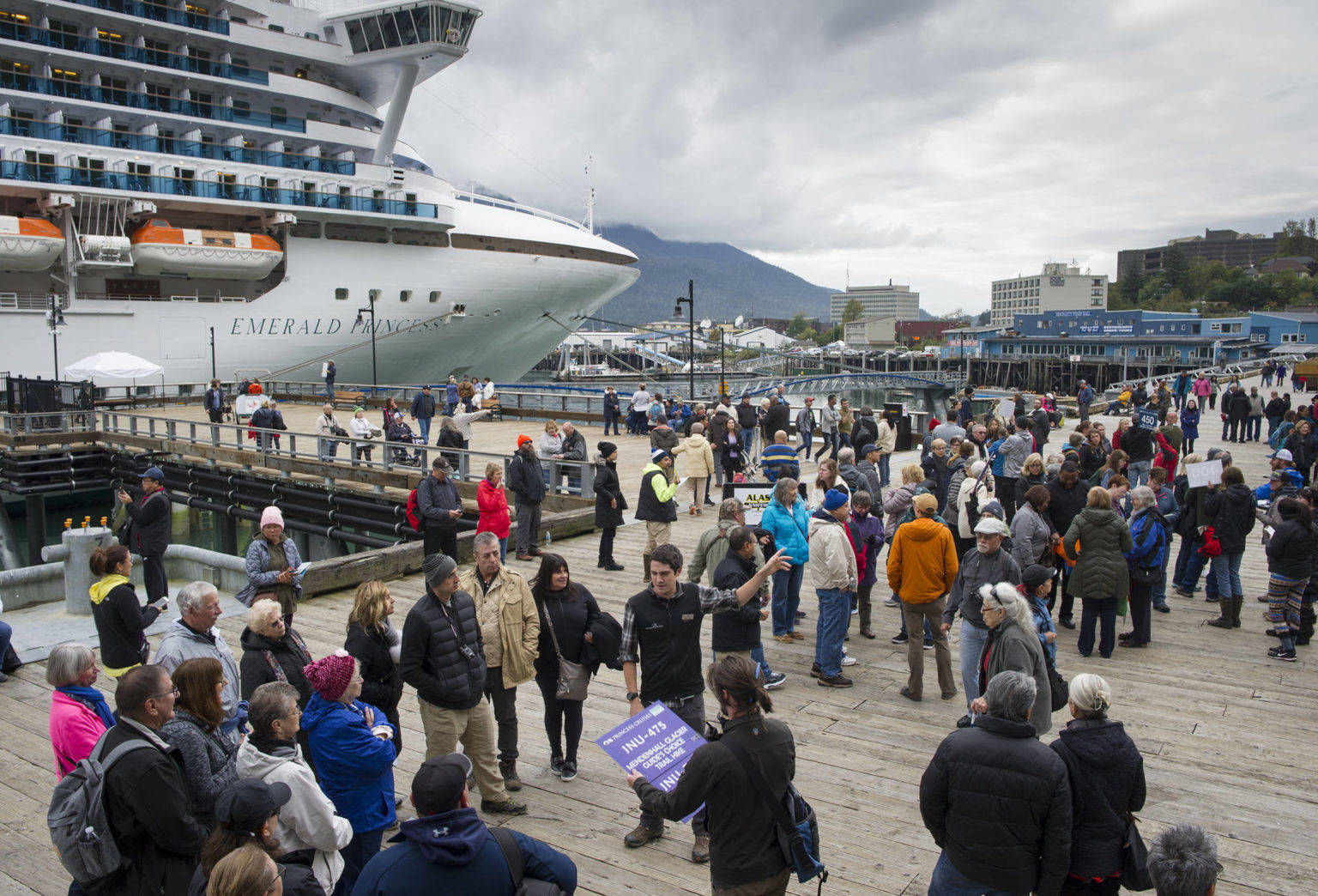Gov. Mike Dunleavy sent a letter to the White House Thursday, urging President Biden to take action to allow cruise ships to travel to Alaska this summer.
The Centers for Disease Control and Prevention has banned cruise ships from sailing, and though the agency updated its guidelines recently, no date has been set for the ban to be lifted. But the availability of vaccines and the state’s relatively low health metrics made the state a leader in coronavirus response, the governor said in his letter.
“Today, I am reaching out with the simple request that you have the (CDC) update its guidance to enable cruise lines and ports to resume operations,” Dunleavy said in the letter. “It’s my hope that (federal authorities) are willing to work with me and other governors seeking to bring back the cruise ship industry.”
Along with the letter, Dunleavy sent an economic report drafted by several state agencies detailing the impacts not having a 2021 cruise season would have on the Alaskan economy.
[New guidelines for cruise ships, but Alaska’s still off the itinerary]
The report details the way not just workers and businesses directly associated with tourism are impacted, but how the lack of those jobs impacts the rest of the state’s economy, according to Department of Labor and Workforce Development Commissioner Tamika Ledbetter. The downstream impacts of the loss of a tourism season have already been significant, Ledbetter told reporters Thursday, saying the amount of unemployment insurance claims processed by the state increased more than tenfold.
Small business revenue down 12% statewide compared to pre-COVID, the report said, and many small businesses have closed.
The state’s unemployment insurance trust fund has paid out over $1.0 billion in the last 14 months with monthly claims rising as high as $182 million, which the report says is twenty times the amount paid in January preceding the COVID-19 situation. The balance of the UI trust fund was $492.9 million in February of 2020 as compared to the latest balance of $265.8 million, according to the report.
However, not mentioned in the governor’s letter or the report is the Passenger Vessel Services Act, which is also preventing larger, foreign-flagged cruise ships from sailing to Alaska. Alaska’s congressional delegation has submitted federal legislation to temporarily waive that allow, but Alaskan officials including the governor stress the need for immediate action.
The CDC’s recent decision to extend the cruise ship ban, Dunleavy said in his letter, “eliminates any potential for a 2021 cruise ship sailing season, and places the futures of thousands of Alaskan families’ businesses in peril.
• Contact reporter Peter Segall at psegall@juneauempire.com. Follow him on Twitter at @SegallJnuEmpire.

